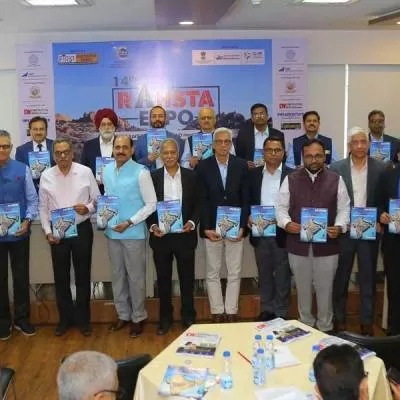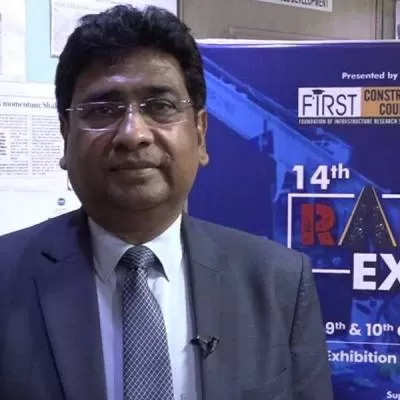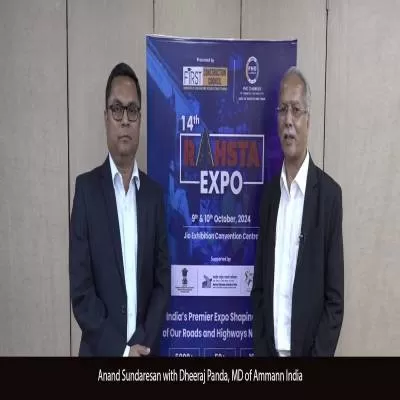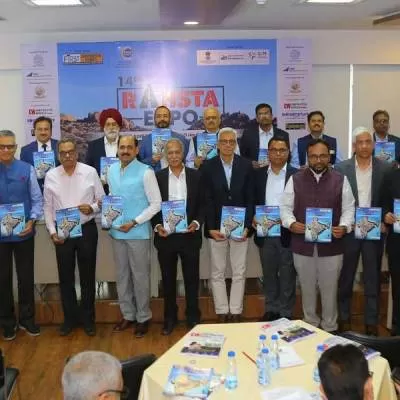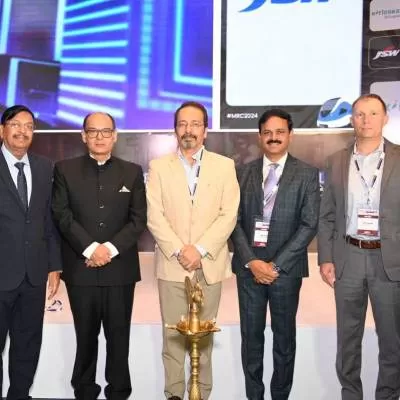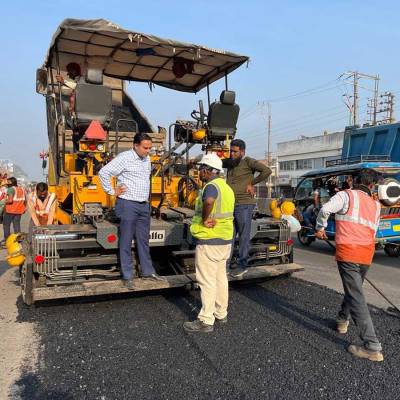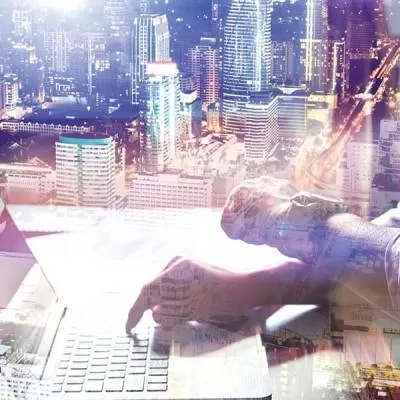- Home
- Technology
- Germany is an important partner for India in technology transfer
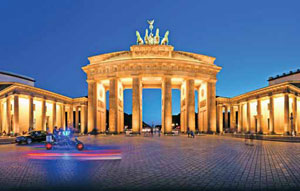
Germany is an important partner for India in technology transfer
Germany is India's largest trading partner in Europe - a bond German President Joachim Gauck recently visited India to cement further. With companies such as Siemens and Bosch operating here for a century or so, large German companies stepping up existing investments and small and medium enterprises (SMEs) also showing an interest, the romance continues. Keeping the love alive is Michael Siebert, Consul General, Consulate General of the Federal Republic of Germany, Mumbai. Since 2012, his job has been "to advertise the opportunities in India for German companies and inform Indian companies about possibilities of trading and investing in Germany,ö as he tells SHRIYAL SETHUMADHAVAN.
What are some areas of potential in the Indo-German equation?
Germany trades and invests in India across industries, but there are some prominent areas. One is the automotive sector, one of our strengths. Another is construction and we are looking at this specifically. However, German companies are more in the second line here as there are not many big contractors for construction projects but a lot of hidden champions, often SMEs dealing with specific aspects. These tend to be sub-contractors in specialised fields offering high-tech solutions to big infrastructure projects.
Which segment within the construction sector do you find most attractive?
Transportation and renewable energy. During our federal president's visit, there was a signing ceremony for projects dealing with green energy corridors worth about ñ900 million. In India, we have co-operated in building the biggest solar power station in Northern Maharashtra.
What are potential projects for transportation?
While the Delhi Mumbai Industrial Corridor (DMIC) is already in the planning and part-implementation stage, we have proposed to the Indian Government that we could jointly work on the Mumbai-Bengaluru corridor, which is yet to be planned. Several German companies are interested and we have offered to finance a feasibility study and do it together with India.
The German president recently signed two umbrella agreements for financial and technical cooperation under Indo-German Bilateral Development Cooperation Framework...
Indian infrastructure needs to be modernised in several areas. Urban mobility is one interesting project that has been decided together. The target is ñ200 million per year for five years and we are in talks with several growing cities, including Pune and Bengaluru, for designing the project, which includes looking at the local mass transport system. Our cities are smaller but we have a longstanding tradition of public transportation.
Also, Pune has become the largest hub of German companies in India...
Yes; six years ago, there were 120 companies from Germany and now there are almost 300. The automotive sector is the main driving force. Most of our companies are still within Maharashtra, especially Mumbai and Pune, some in Aurangabad, Nagpur and Nashik, as well. Chennai witnesses another big cluster of German automotive companies. There are also some upcoming clusters in Delhi for offices and Bengaluru for IT. I will also mention Gujarat, as some German companies have successfully set up production sites in Ahmedabad and Vadodara.
Germany is one of the biggest technology partners for India. Please comment.
Germany is an important partner for India in technology transfer. Every two months or so, despite the current mood - which is not the best for the Indian economy - there is a German company inaugurating a new production site or office in India. Whether it is energy, automotive or the health sector, one of the biggest strengths of Germany is engineering and most Indian students coming to Germany are pursuing engineering in our world-class universities, which work in close cooperation with German companies, especially for machinery.
There has been a phenomenal rise in Indian companies investing in Germany as well.
Today, Germany is the second FDI destination in Europe for Indian companies. IT has probably been the first sector from India that has hugely invested in Germany. There are two ways to invest: one is where Indian companies buy smaller German companies that are not performing well and improve their operations and the other is greenfield investment. Germany is the centre of Europe and you can travel to 26 countries with a German visa. Also, in former East Germany, if you do a greenfield investment, there are a lot of packages to help you with incentives.
Any area that German companies are yet to tap in India?
Specialised jobs in the construction of real estate. Whether it is sanitary equipment, bathroom appliances, hi-tech solutions or technology for energy-efficiency, these are areas where Germany is a top global player. The best way to improve energy balance is to save energy by insulating the houses better. These are areas where German companies are active, but they could do even more.
Any challenges in the bilateral relationship?
German companies have to weigh the huge potential they might tap in India with the risk it brings along. This applies to FDI laws, regulatory framework and currency development. So the hope is that the next Indian Government will be stable with a vision to develop economic ties with the rest of the world and companies find an even more stable environment. This might further bolster economic relations. The second challenge is the conclusion of the Free Trade Agreement between the European Union and India, which has been discussed for many years. We hope that after the new government having been formed in Germany recently, the European elections in the end of May, and elections in India, there will be a window to conclude negotiations soon. This will open up cooperation in many areas and be beneficial for India and Europe.
Any message to India?
Many companies in India have been expressing interest in the system of dual education. In Germany, we follow a specific model; people are trained in two ways: they follow a professional school and work in a training centre or company. An attempt is being made to replicate this model in many countries. We have set up an office called iMove in Delhi to consult Indian partners interested in setting up a similar education system. For India, the challenge is to educate people below the academic level. This is a very important part of the industrial structure and it is a German strength we would like to share.
Vital stats
- Germany is the second FDI destination in Europe for Indian companies. Several German companies are interested in the yet to be planned Mumbai-Bengaluru Industrial Corridor.
- The country has a long standing tradition of public transportation.
- Engineering is one of Germany's biggest strengths.
To share your views on Indo-German bilateral relations, write in at feedback@ASAPPmedia.com
Michael Siebert, Consul General, Consulate General of the Federal Republic of Germany, Mumbai Germany is India's largest trading partner in Europe - a bond German President Joachim Gauck recently visited India to cement further. With companies such as Siemens and Bosch operating here for a century or so, large German companies stepping up existing investments and small and medium enterprises (SMEs) also showing an interest, the romance continues. Keeping the love alive is Michael Siebert, Consul General, Consulate General of the Federal Republic of Germany, Mumbai. Since 2012, his job has been "to advertise the opportunities in India for German companies and inform Indian companies about possibilities of trading and investing in Germany,ö as he tells SHRIYAL SETHUMADHAVAN. What are some areas of potential in the Indo-German equation? Germany trades and invests in India across industries, but there are some prominent areas. One is the automotive sector, one of our strengths. Another is construction and we are looking at this specifically. However, German companies are more in the second line here as there are not many big contractors for construction projects but a lot of hidden champions, often SMEs dealing with specific aspects. These tend to be sub-contractors in specialised fields offering high-tech solutions to big infrastructure projects. Which segment within the construction sector do you find most attractive? Transportation and renewable energy. During our federal president's visit, there was a signing ceremony for projects dealing with green energy corridors worth about ñ900 million. In India, we have co-operated in building the biggest solar power station in Northern Maharashtra. What are potential projects for transportation? While the Delhi Mumbai Industrial Corridor (DMIC) is already in the planning and part-implementation stage, we have proposed to the Indian Government that we could jointly work on the Mumbai-Bengaluru corridor, which is yet to be planned. Several German companies are interested and we have offered to finance a feasibility study and do it together with India. The German president recently signed two umbrella agreements for financial and technical cooperation under Indo-German Bilateral Development Cooperation Framework... Indian infrastructure needs to be modernised in several areas. Urban mobility is one interesting project that has been decided together. The target is ñ200 million per year for five years and we are in talks with several growing cities, including Pune and Bengaluru, for designing the project, which includes looking at the local mass transport system. Our cities are smaller but we have a longstanding tradition of public transportation. Also, Pune has become the largest hub of German companies in India... Yes; six years ago, there were 120 companies from Germany and now there are almost 300. The automotive sector is the main driving force. Most of our companies are still within Maharashtra, especially Mumbai and Pune, some in Aurangabad, Nagpur and Nashik, as well. Chennai witnesses another big cluster of German automotive companies. There are also some upcoming clusters in Delhi for offices and Bengaluru for IT. I will also mention Gujarat, as some German companies have successfully set up production sites in Ahmedabad and Vadodara. Germany is one of the biggest technology partners for India. Please comment. Germany is an important partner for India in technology transfer. Every two months or so, despite the current mood - which is not the best for the Indian economy - there is a German company inaugurating a new production site or office in India. Whether it is energy, automotive or the health sector, one of the biggest strengths of Germany is engineering and most Indian students coming to Germany are pursuing engineering in our world-class universities, which work in close cooperation with German companies, especially for machinery. There has been a phenomenal rise in Indian companies investing in Germany as well. Today, Germany is the second FDI destination in Europe for Indian companies. IT has probably been the first sector from India that has hugely invested in Germany. There are two ways to invest: one is where Indian companies buy smaller German companies that are not performing well and improve their operations and the other is greenfield investment. Germany is the centre of Europe and you can travel to 26 countries with a German visa. Also, in former East Germany, if you do a greenfield investment, there are a lot of packages to help you with incentives. Any area that German companies are yet to tap in India? Specialised jobs in the construction of real estate. Whether it is sanitary equipment, bathroom appliances, hi-tech solutions or technology for energy-efficiency, these are areas where Germany is a top global player. The best way to improve energy balance is to save energy by insulating the houses better. These are areas where German companies are active, but they could do even more. Any challenges in the bilateral relationship? German companies have to weigh the huge potential they might tap in India with the risk it brings along. This applies to FDI laws, regulatory framework and currency development. So the hope is that the next Indian Government will be stable with a vision to develop economic ties with the rest of the world and companies find an even more stable environment. This might further bolster economic relations. The second challenge is the conclusion of the Free Trade Agreement between the European Union and India, which has been discussed for many years. We hope that after the new government having been formed in Germany recently, the European elections in the end of May, and elections in India, there will be a window to conclude negotiations soon. This will open up cooperation in many areas and be beneficial for India and Europe. Any message to India? Many companies in India have been expressing interest in the system of dual education. In Germany, we follow a specific model; people are trained in two ways: they follow a professional school and work in a training centre or company. An attempt is being made to replicate this model in many countries. We have set up an office called iMove in Delhi to consult Indian partners interested in setting up a similar education system. For India, the challenge is to educate people below the academic level. This is a very important part of the industrial structure and it is a German strength we would like to share. Vital stats Germany is the second FDI destination in Europe for Indian companies. Several German companies are interested in the yet to be planned Mumbai-Bengaluru Industrial Corridor. The country has a long standing tradition of public transportation. Engineering is one of Germany's biggest strengths. To share your views on Indo-German bilateral relations, write in at feedback@ASAPPmedia.com


